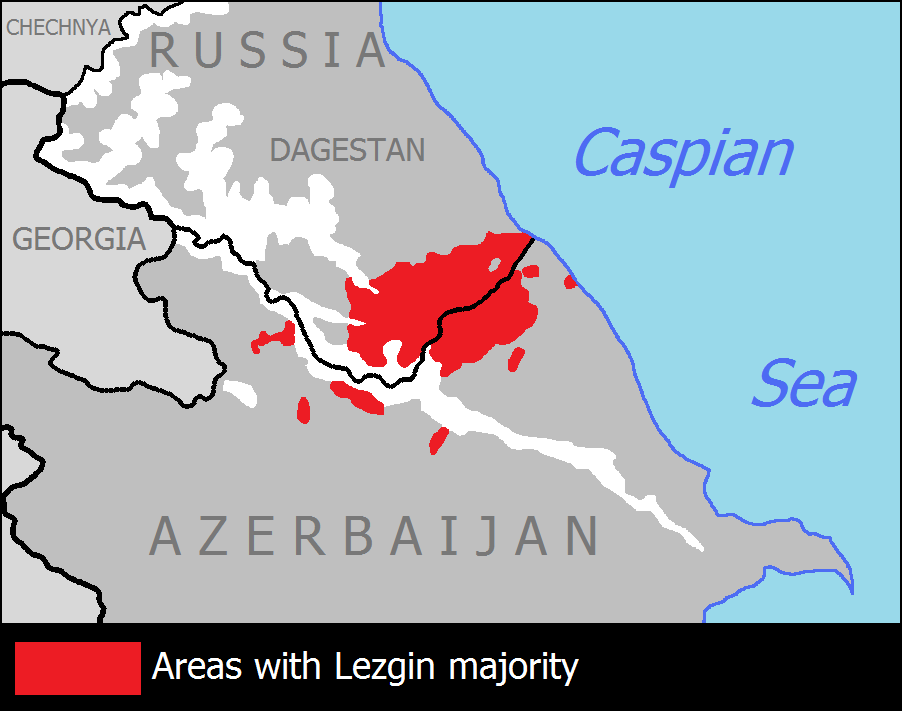
Karabakh Fighting Intensifies Lezgin Separatism in Azerbaijan
By Paul Goble
New violence between Baku and Yerevan over the occupied territories (see EDM, August 7) has sparked a new wave of separatism among the Lezgins of Azerbaijan. This ethnic community calculates that the violence gives it a new chance to gain autonomy via Moscow’s efforts to gain additional leverage over Baku without having the situation in Dagestan blow up in its face.
Azerbaijan today is more ethnically homogeneous than at any point in its history, if one excludes the territories occupied by Armenia, but it does have two significant ethnic minorities, the Talysh in the south and the Lezgins in the North. The former, an Iranian group of about 100,000, has not been a major problem for Baku over the last decade. But the latter, which includes as many as 350,000 in northern Azerbaijan and another 400,000 on the other side of the Azerbaijani-Russian border, is something else. As one commentator notes, while the Talysh have to deal with Baku “one on one, behind the back [of the Lezgins] stands Russia” (apmahachkala.ru, August 8).
The Lezgins in Azerbaijan have long complained about Azerbaijani discrimination, and the Lezgins in Dagestan have equally long complained about Baku’s efforts to promote its influence northward. In both cases, Moscow has used the Lezgins against Baku when it has perceived Azerbaijan to be weak or when Moscow is seeking additional leverage to force Azerbaijan not to attack Russia’s ally Armenia or to follow Moscow’s line on other issues.
In 1993, a group of Lezgins attacked an Azerbaijani border post, and a year later, they organized a terrorist attack in the Baku metro. Now, as one commentator has noted, “considering the Ukrainian events, the unification of Crimea to Russia, and the recognition of the latter by South Ossetia and Abkhazia, Lezgin nationalists at any moment may ask themselves the question: if the Abkhazians, Ossetians, and Crimeans with the support of Russia and the Karabakh people with that of Armenia could separate, then why cannot the Lezgins do the same by having asked Russia for help?” (apmahachkala.ru, August 8).
Anton Yevstratov, a Russian political scientist and historian, points out that “Lezgins living on the territory of Dagestan are a problem not just for Baku. They are also one for Moscow” because they have sought to gain greater autonomy within Dagestan, the most ethnically diverse non-Russian republic in the Russian Federation. And when they have not achieved the support they hoped for from Moscow, the Lezgins have not been shy about turning to radical groups elsewhere in the North Caucasus. In fact, in the early 1990s, the Sadval Movement regularly cooperated with Dzhokhar Dudayev’s Chechnya. Thus, the Lezgins can be a two-edged sword (sp-analytic.ru, July 31).
Nonetheless, Moscow seems prepared to use it against Baku now, to remind the Azerbaijan authorities that they could face a two- or even three-front war if they seek to reclaim the occupied territories by force. At the same time, however, the Lezgins might act on their own, which could end by causing as many headaches for Moscow as for Baku.




